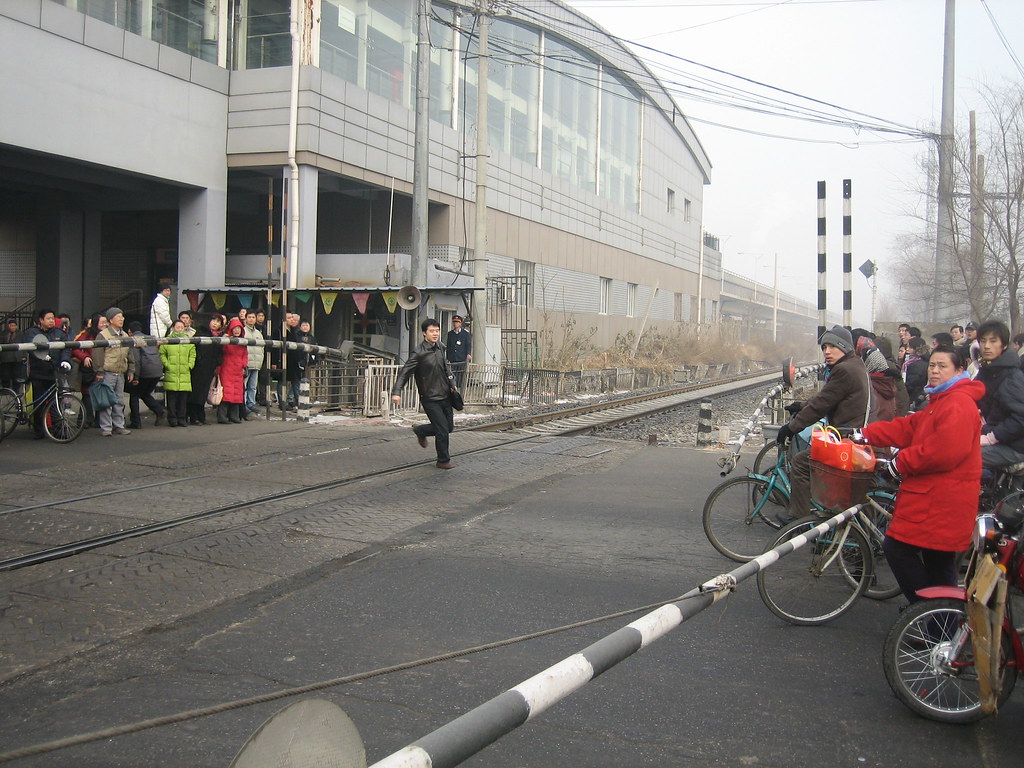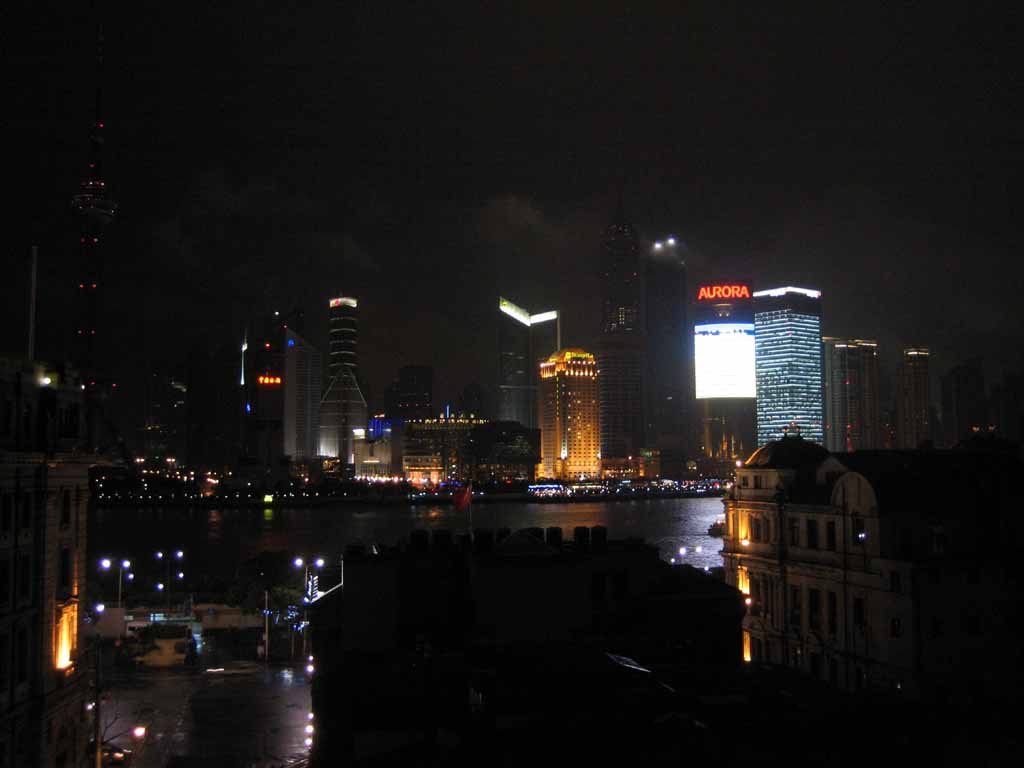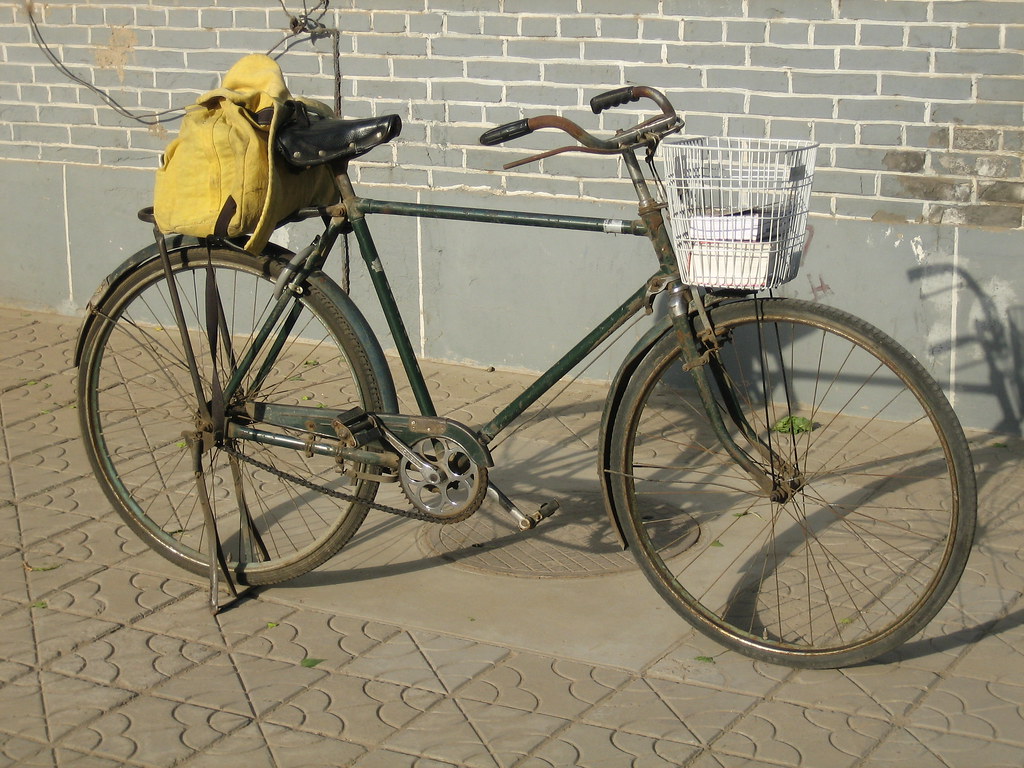When I thought of creating this section I immediately thought of China because of the recent comments about China censorship of internet sites. I wondered how it was living there and what could be the point of view of someone living there. So it was then that I came up with Eric´s site and contact. Eric Langager is the writer of Eric’s Beijing Diary, a blog about his stay in China. He lives in China since 2003, where he teaches. He already lived in four different countries and had many professions.
Once again I would like to thank him for the immediate response and sympathy that allowed the following interview:
 In a few words describe yourself (so people can get to know you better).
In a few words describe yourself (so people can get to know you better).
Eric Langager (EL) - Who am I? The story really begins with my grandfather, who was from Norway, and came to the US as a homesteader in the early days of the 20th Century. I myself was born in Tokyo, and grew up in the north of Japan where my parents were missionaries. I took my first trip to America when I was three, but we returned to Japan, where I lived until I was thirteen. After that, I lived in the United States. Mainly four states (North Dakota, Minnesota, Oregon and Arizona) except for seven years in the trucking industry when I spent some time in every one of them. After driving to the moon and back (600 thousand + miles), I cleaned out my truck and decided to go back to my profession (I had been a teacher). However, I didn't want to return to the public school system, so I studied for Microsoft certification and became a technical trainer. During the four years I taught at a private software university in Arizona (UAT), I decided to become a database specialist, and obtained Oracle certification. In 2004, I joined the faculty of the Software College here at the Beijing University of Aeronautics and Astronautics.
You already lived in 4 different countries (Japan, USA, Canada and China) and visited many places and people. What did you find similar in those places/people and what did you find completely different?
(EL) - Kipling said that "East is east, and west is west, and never the twain shall meet." Japan has spent the years since World War II trying to disprove that notion, and has largely succeeded. So while there are ways that Asian cultures differ from a western culture like America, there are also ways that a developing country like China differs from developed nations like Japan and America.  China today reminds me so much of the Japan of my childhood: growing economically, yet somehow simpler, slower paced, and more relaxed than the more frenzied developed societies.
China today reminds me so much of the Japan of my childhood: growing economically, yet somehow simpler, slower paced, and more relaxed than the more frenzied developed societies.
What was the biggest shock when you start living in China?
(EL) - You know, I went through major culture shock when I moved to America as a thirteen-year-old kid. I didn't ever want to go through anything like that again, so I took great pains to prepare myself to live in China. But there is always something you don't anticipate. For me, it was food. I thought I would be able to adapt to a different cuisine. I was prepared to suffer through food that tasted very different from what I was used to. What I was not prepared for, was the seemingly unlimited variety of incredibly delicious dishes in the seven cuisines of China. It really shouldn't be legal to make food so delicious.
 You live in China for about 3/4 years. How is the day-by-day life in a dictatorship and how do you feel their presence?
You live in China for about 3/4 years. How is the day-by-day life in a dictatorship and how do you feel their presence?
(EL) - First of all, China cannot really be called a dictatorship, because in order to have a dictatorship, you need to have a dictator. The leadership of China is very different from the early days of liberation in that respect. Mao certainly was a dictator. And I suppose you could say the same thing about Deng Xiao-ping, because, although he was very different from Mao, he did tend to lead by dictate that went beyond legal authority. The most far-reaching of his famous economic reforms really began in the nineties, after he had relinquished all formal official positions.
But the modern leadership is not this way. The days of one man being able to arbitrarily overrule the party are history (at least for now). Don't get me wrong, Hu Jin-tao is not just a figurehead. He is an executive, much like the US president, or the British prime minister. He is essentially the "CEO" of China. But he does not by any means wield absolute authority. Truthfully, it is not that easy to define exactly how things work in China, because it is changing so rapidly. The only thing we know for sure is that it is very, very different from the way it was before. China is not a democracy in the American sense of the word, but it is not the oligarchy that some in the West suppose, either. True, the government is controlled by the Communist Party, but remember, the Party has 60 million members.
Now, as to the main part of your question: What is it like? Well, when times are good economically, it's great. I took a drastic cut in pay to come to China (about 75 per cent). But I also saw a 90 per cent cut in cost of living. Simply put, in terms of day-to-day living, it is easier (at least for a single person) to get by in China. I don't have a car. I don't want a car. There are lots of busses, I have a bicycle, and taxies are not expensive.
But what would life be like in an economic downturn? There could be problems, because corruption is quite widespread in China. A booming economy absorbs much of that. China has close to a 200 billion dollar trade imbalance with the United States. That means that every five years or so, the United States of America pours a trillion dollars in hard, cold cash into the Chinese economy. That's a lot of money.
We talk about censorship in China a lot but how is it he felt in China? What does the common Chinese feels about it?
(EL) - Basically, if you can read English, you can get the information you need in this country. I read the China daily, and watch a couple programs on the 24 hour English channel. In addition, I go to the coffee bar and read the Wall Street Journal. Every day, I listen to BBC Newshour. I also listen to Morning Edition on National Public Radio, and I watch one American news program each week. It's called "Mclaughlin Group." I download the Quicktime video file for this half-hour program from their web site.
Chinese people seem to be amazingly resigned to getting news from the sources that are allowed to them in Chinese. This is not all bad, because there are some very good papers in China (such as Beijing News), that operate as close to the edge as the government will let them. But I encourage them to use the Internet to avail themselves of other perspectives.
In your opinion, how does the Chinese people perceived the western countries?
(EL) - Generally favorably. The US has lost credibility because of the Iraq War, but Chinese people are generally very friendly to westerners.

 What is the effect of China economic growth in the common Chinese person, and what is changing because of this?
What is the effect of China economic growth in the common Chinese person, and what is changing because of this?
(EL) - Deng Xiao-ping's economic reforms lifted hundreds of millions of people out of poverty (at least the population of the United States). So it is much better than before, but there are still lots of poor people in this country.
Still, many more people than before have the money to provide their children with good education even if they did not pass the National Entrance Examination.
 What do you find more appealing in teaching and living in China?
What do you find more appealing in teaching and living in China?
(EL) - Well, I alluded to it before...I don't know, I guess I just like being able to decide for myself how modern I want to be. I ride a bike, but I carry my laptop with me.
Being connected to technology what was the best inovation for you? And what innovation do you want to see in the future?
(EL) - The most useful innovation since I have been in China, is that all the coffee bars in this area have set up free high-speed wireless Internet connections. Regarding future innovations, this may seem strange coming from a technical trainer, but I hope China doesn't develop too many new innovations. Life tends to get complicated when you do that. I guess if there is one thing that would be nice, it would be the development and enhancement of remote communications.
[All pictures were taken from Eric's
site]
 In a few words describe yourself (so people can get to know you better).
In a few words describe yourself (so people can get to know you better).
 You live in
You live in 

 What is the effect of
What is the effect of  What do you find more appealing in teaching and living in
What do you find more appealing in teaching and living in 








